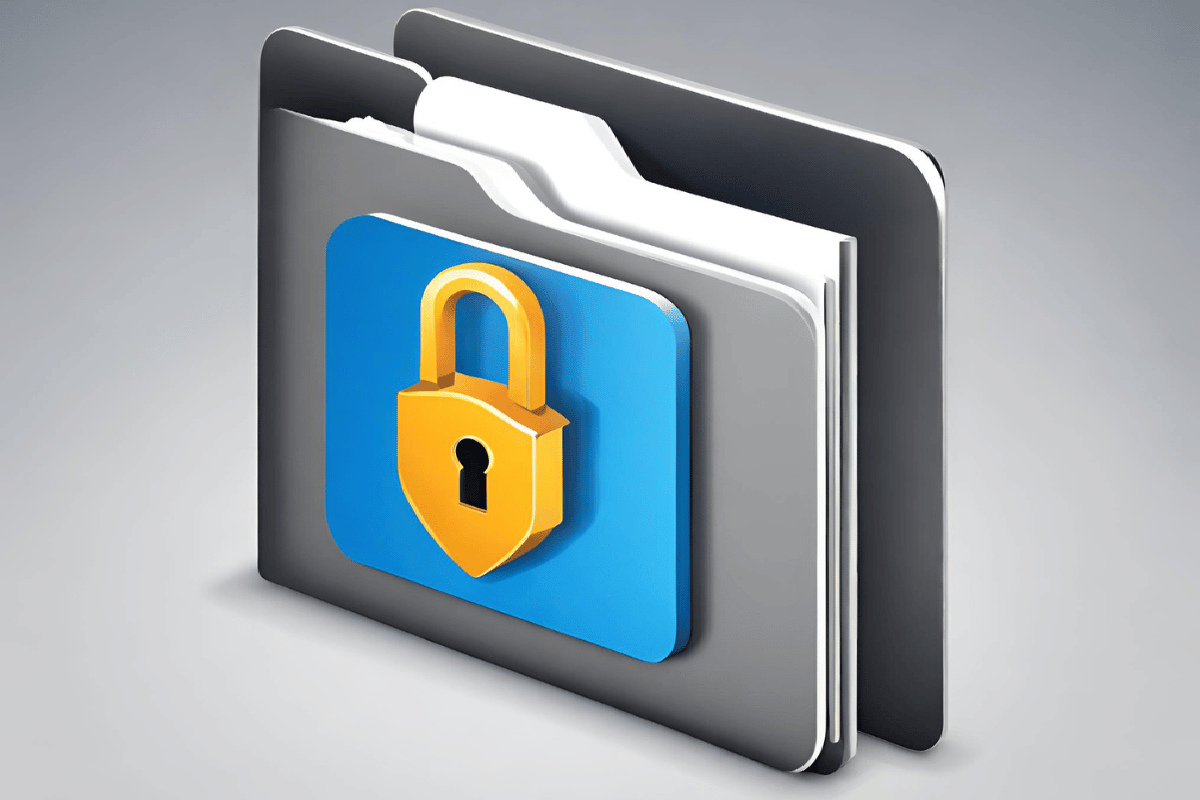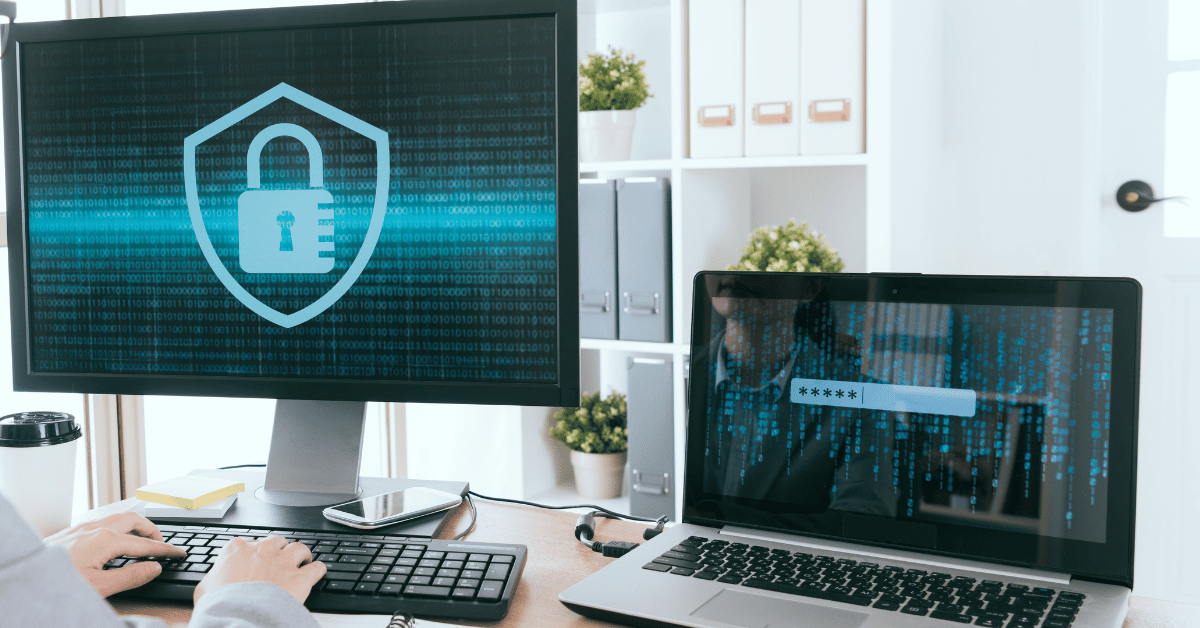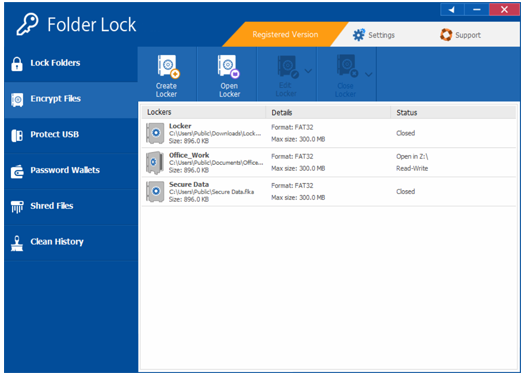Protecting your files and folders is crucial to prevent unauthorized access and safeguard your personal and sensitive information. Without proper security measures, your data is at risk of identity theft, financial loss, and privacy breaches. Passwords are an effective way to protect your files, provided they are strong, unique, and not shared. Implementing two-factor authentication (2FA) adds an extra layer of security. Data encryption secures data during transmission and while at rest. Using dedicated folder lock software enhances file and folder protection, offers user-friendly interfaces, and provides enhanced password protection and multiple encryption algorithms for comprehensive security, making it an excellent choice for safeguarding your data.
Why Protecting Your Files and Folders Matters?

Prevention of Unauthorized Access
One of the most critical reasons for protecting your files and folders is to prevent unauthorized access. Without proper security measures in place, your data is vulnerable to prying eyes, hackers, and malicious actors. Unauthorized access can lead to various devastating consequences, including identity theft, financial loss, and privacy breaches.
Your computer or mobile device likely stores a treasure trove of personal information. From your contact list and email correspondence to social media accounts and online shopping history, a breach could expose sensitive details that you’d rather keep private.
Preservation of Personal Privacy
Your files and folders may contain intimate details of your life—your thoughts, experiences, and cherished memories. Allowing unauthorized individuals access to these aspects of your life can be deeply intrusive and unsettling.
The invasion of your privacy can be emotionally distressing. By protecting your files and folders, you reclaim control over your digital life, ensuring that your personal space remains intact and inviolable.
Safeguarding Business and Financial Data
- Financial Loss: In the business world, unauthorized access to financial records can result in substantial financial losses. For individuals, it can lead to unauthorized transactions or fraud.
- Reputation Damage: In a professional context, a data breach can tarnish your reputation and erode trust with clients, colleagues, or employers. Maintaining the confidentiality of sensitive work-related files is vital for professional success.
- Academic Integrity: For students, protecting academic records and research work is essential to preserve academic integrity and prevent academic misconduct.
Passwords Protection:
Passwords are the simplest yet most effective way to protect your files and folders.
Use Strong and Unique Passwords
Avoid easily guessable passwords like “123456” or “password.” Instead, create strong, unique combinations of letters, numbers, and symbols. The longer and more complex your password, the harder it is for hackers to crack.
Don’t Share Your Passwords
Never share your passwords with anyone you don’t trust explicitly. Sharing passwords increases the risk of unauthorized access, even unintentional.
Change Your Passwords Regularly
Regularly changing your passwords adds an extra layer of security. If a password is compromised, the potential damage is limited if it’s changed frequently.
Implement Two-Factor Authentication (2FA)
2FA provides an additional level of security by requiring users to provide two different authentication factors (e.g., a password and a unique code sent to their phone) before gaining access.
The Role of Data Encryption:
While passwords are essential, data encryption takes your file and folder protection to the next level. Data encryption involves converting your data into a code that can only be deciphered by someone with the appropriate decryption key.
Protects Data During Transmission
Encryption ensures that your data remains safe while being transmitted over the internet. This prevents eavesdropping and data interception during file transfers.
Secures Data at Rest
When your data is stored on a device or server, encryption safeguards it from unauthorized access. Even if someone gains physical access to your device, they won’t be able to read your encrypted files without the decryption key.
How to Implement Password Protection and Data Encryption?

Password Protection
- Choose a Strong Password: Create a strong, unique password for each account or device. Use a combination of upper and lower-case letters, numbers, and special characters.
- Use a Password Manager: Consider using a password manager to generate, store, and autofill complex passwords for you. This helps you keep track of numerous passwords securely.
- Enable 2FA: Whenever possible, enable two-factor authentication on your accounts to add an extra layer of security.
- Regularly Update Passwords: Change your passwords regularly, especially if you suspect any compromise.
Data Encryption
- Select a Reliable Encryption Software: Choose reputable encryption software that suits your needs. Many operating systems and devices come with built-in encryption features.
- Create Strong Encryption Keys: If the software allows, create strong encryption keys. Longer keys are generally more secure.
- Encrypt Sensitive Files and Folders: Identify the files and folders containing sensitive information and encrypt them using your chosen encryption software.
- Backup Encryption Keys: Ensure you have a secure backup of your encryption keys. Losing the key can result in permanent data loss.
Why Use Folder Lock Software for Password Protection and Encryption?

Comprehensive File and Folder Protection
Folder lock software provides comprehensive protection for your files and folders, far beyond what basic operating system security measures can offer. It allows you to create secure containers or lock individual folders, ensuring that your data remains safe from prying eyes, malware, and unauthorized access.
Unlike relying solely on passwords or basic file permissions, folder lock software employs advanced encryption techniques to keep your data secure both during storage and transmission. This added layer of protection is essential, especially when dealing with sensitive or confidential information.
Enhanced Password Protection
Folder lock software enhances password protection by allowing you to set up strong and unique passwords for your encrypted folders or containers. This is a crucial aspect of security because weak or easily guessable passwords can be a significant vulnerability.
Additionally, it provides features like brute-force attack protection, which automatically locks the program after a certain number of unsuccessful login attempts.
Having multiple encryption options ensures that you can tailor your security measures to the specific requirements of your files and folders, providing an added layer of customization and security.
Multiple Encryption Algorithms
To ensure the highest level of security, folder lock software often offers multiple encryption algorithms to choose from. This flexibility allows you to select the encryption method that best suits your needs, whether it’s AES (Advanced Encryption Standard), Blowfish, or others.
Conclusion:
Safeguarding your files and folders is a critical step in protecting your personal privacy, financial well-being, and professional integrity. Unauthorized access can lead to identity theft, financial losses, and reputation damage. Utilizing strong passwords, two-factor authentication, and encryption software are proactive measures that can significantly enhance your data security. Additionally, dedicated folder lock software provides a comprehensive and user-friendly solution, offering enhanced password protection, multiple encryption options, and cross-platform compatibility.
FAQs:
Why should I bother protecting my files and folders?
Protecting your files and folders is essential to prevent unauthorized access, safeguard your personal privacy, and secure sensitive business or financial data. Without proper protection, your data is vulnerable to identity theft, financial loss, and privacy breaches.
What are the potential consequences of unauthorized access to my files and folders?
Unauthorized access can lead to identity theft, financial loss due to unauthorized transactions or fraud, reputation damage in professional contexts, and even academic misconduct for students.
Is it essential to change passwords regularly?
Yes, changing passwords regularly is a best practice to add an extra layer of security. Regular changes help mitigate potential damage in case a password is compromised.
Can I use the same password for multiple accounts?
It’s not recommended to use the same password for multiple accounts. Using unique passwords for each account enhances security and prevents a security breach on one account from affecting others.
How can I keep track of numerous complex passwords?
Consider using a password manager, which can generate, store, and autofill complex passwords for you. This simplifies password management while maintaining security.
